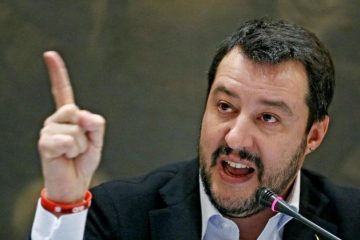
The Captain at the Helm: The Rise of the League and the Imbalances of the Italian Government
Italy’s post-war political system is not new to dramatic government changes and sudden reversals of fortunes. The experience of the first populist experiment in government thus far is no exception. The elections of March 4th, 2018, were nothing short of a political earthquake. The most dramatic result was the success of the Five Star Movement (M5S). The political formation, created by comedian-turned-guru Beppe Grillo and led by his former lieutenant Luigi Di Maio, became the strongest party in Parliament with 32.7% of votes, wooing voters away from Matteo Renzi’s PD. On the right, the League took over Berlusconi’s Forza Italia as the main political party, winning over 17% of votes. This ‘sorpasso’ emboldened Salvini to break with the electoral pact …
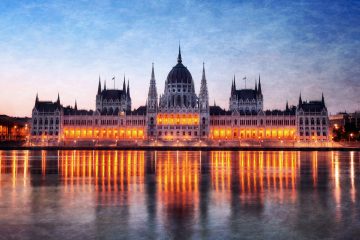
Four Myths about Orbán’s Hungary
Even though Hungarians vote this Sunday, April 8th, this piece is not on the Hungarian parliamentary elections per se. Whilst the initial idea was to write a short summary of the state of the opposition to prime minister Viktor Orbán, I had to quickly realize that the average Western news consumer hardly knew anything about Hungary. Hence presupposing very little knowledge about the ins and outs of Hungarian politics, I will try to challenge some of the assumptions and myths extolled in recent news articles on the Hungarian elections by giving you some additional, contextual information. Myth #1: Hungary is an outright illiberal state Despite their thoroughly liberal roots, Fidesz – the larger party in the current government coalition in …
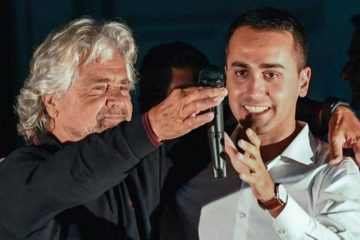
From the Parole Guerriere to Electoral Success: Italy’s Five Star Movement
The Five Star Movement is one of the most interesting political ‘experiments’ on political landscape of Western democracies. Once again Italy, which with Berlusconi has experienced Trumpism before Donald Trump, is a political laboratory for novel political phenomena that the world looks at, with a mixture of concern and excitement, to learn something about the future of our democratic systems. Only five years ago Beppe Grillo, a stand-up comedian and the founder of the Five Star Movement (M5S), launched his parole guerriere (warlike words) and M5S obtained a remarkable 25% of the national vote in its first electoral showing. Italian voters again expressed loudly and clearly their preference for the Five Star Movement in last weekend’s general election. The M5S not …
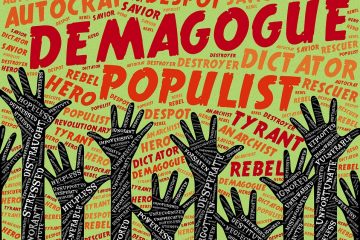
The Fall of the Liberal Project
Since the fall of the Berlin Wall, liberal ideals have defined Europe’s political order. Parties that questioned free trade and democratic checks-and-balances could hardly gain many votes. Cultural tolerance and religious neutrality was the norm. The EU was seen not only as an engine of wealth, but also as an ethical power spreading liberal norms throughout the world. This era is now approaching its end. Liberal ideals are under fire from Helsinki to Athens. There are many local variations of the anti-liberal surge, but let us not delude ourselves: populism is not just confined to Hungary, Greece and Poland. Nigel Farage and his populist party UKIP have triumphed in the Brexit referendum. The Freedom Party of Austria, which came to …
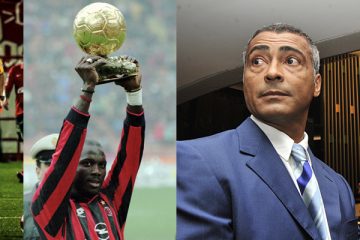
From Scoring Goals to Winning Votes: How Three Footballers Strike Out as Politicians
George Weah’s recent election as President of Liberia is not only noteworthy for being the first peaceful transition of power in the country since 1944. His victory is also “a lesson in how sports fame can help propel figures with humble beginnings to positions of great importance.” Weah is not the only former striker who has transitioned from scoring goals to winning votes. While there is no shortage of lists of former players-turned-politicians, a closer look at three of the game’s most popular players reveals how they have leveraged their fame, wealth and appeal to mount successful populist campaigns. George Weah: President of Liberia Playing for Paris St Germain, AC Milan, Chelsea and Manchester City, George Weah is the first …
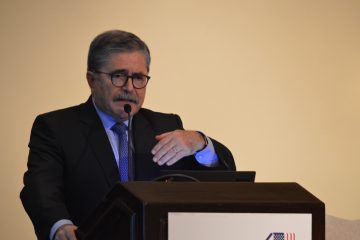
A Trump in the Tropics? Why a Demagogue became the Leading Contender in Costa Rica’s Upcoming Election
Costa Rica, the longest running democracy in Latin America, will hold its 17th consecutive election on February 4th, 2018. According to the latest opinion polls, the leading contender is the controversial populist Juan Diego Castro. There is a general lack of any candidate receiving overwhelming support, betraying a certain discontent and apathy about the candidates vying for the office of president. From the thirteen candidates in the running, even the five most popular candidates only receive between 5% and 18% of votes; thus, falling far behind the 40% required for a win in the first round. By far, the largest group are those that remain undecided: One in three voters has not made up their minds about which candidate to …

True news or right news? The parallel media universe of the Austrian Freedom Party
Some say Austria dodged a bullet last year. After an acrimonious year-long election campaign the Alpine nation elected Alexander Van der Bellen, a veteran Green Party politician, as president last December. He had a margin of 7.5 points over his far-right rival candidate, Norbert Hofer. Centrists, social democrats and liberals all over Europe breathed a sigh of relief, the Guardian remarked. In least in one country, nativist populism had been defeated. Yet, those worried about right-wing populism should not claim victory too soon. The far-right managed to build a strong online presence in this election—one that they will capitalise on in the future. Austria’s 2016 presidential election Austria’s vote echoes some of the most divisive aspects of the US elections held shortly …
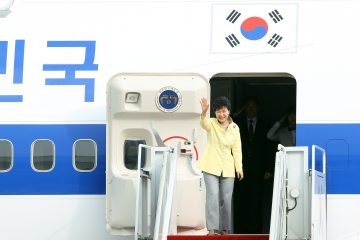
South Korea’s democracy needs greater accountability and transparency
With the Brexit vote and the election of Donald Trump, the democratic world seems to have entered an era of uneasiness and rebellion. In a part of the world remote from Europe and the United States, a relatively “young democracy”—South Korea—is not immune to the changes that are sweeping through the world’s democracies. The country is experiencing a crisis unprecedented since the 1990s when it consolidated its democracy. A recent political scandal involving President Park Geun-hye and her close friend Choi Soon-sil has spilled over politics and extended to South Korea’s politics, economy and education, leading to a far-reaching national crisis. Hundreds and thousands of South Korean citizens have taken to the streets holding up candles in protest against Park …









